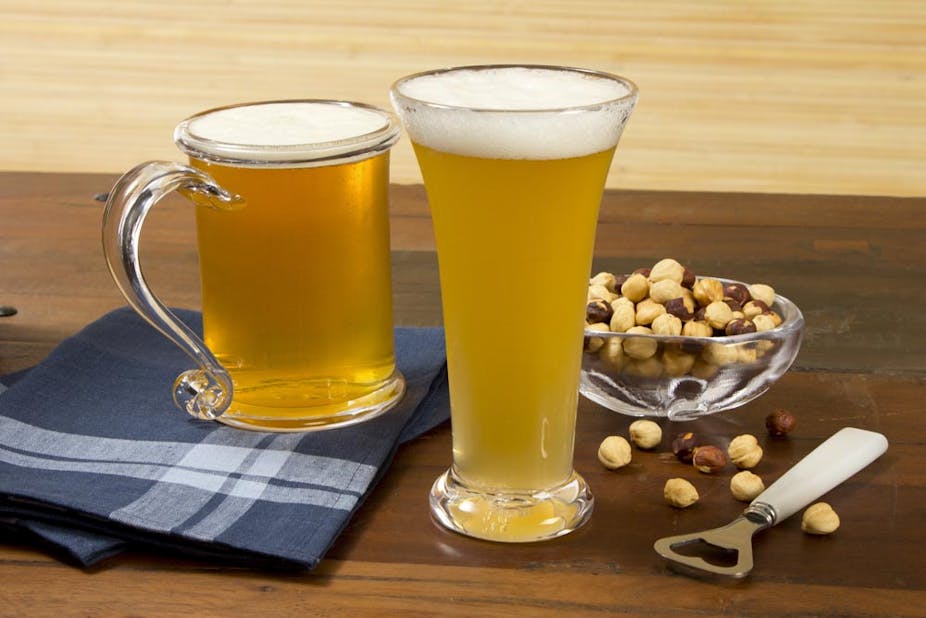Even the tiniest taste of beer can be enough to drive some men to want to drink more, a new study has found.
While it sounds like the kind of study dreamt up at a backyard barbeque, US researchers have published an article in the journal Neuropsychopharmacology, testing whether the flavour of beer alone could provoke dopamine activity in the brain and make men want to drink more.
They found it did. More significantly, the extent to which the participants said flavour made them want to drink more beer appeared to be linked to a family history of alcoholism.
The team of researchers from Indiana University’s School of Medicine said they believed it was the first study to examine if the flavour of an alcoholic drink alone could trigger dopamine release in humans.
Some 49 men took part in the study, ranging from social to heavy drinkers, with an average age of 25 and a varied family history of alcoholism.
The men underwent positron emission tomography scans while a computer-controlled “gustometer” sprayed tiny amounts of beer, water and sports drink Gatorade through a tube and onto their tongues.
Compared with getting a taste of Gatorade, the taste of beer significantly increased the men’s stated desire to drink.
The tests indicated that the alcohol-associated flavour triggered a dopamine release, despite there being not enough alcohol content in the spray for the men to be getting drunk.
That response was strongest in men with a greater genetic risk for alcoholism, with close family members who are alcoholics.
Study author David Kareken, Deputy Director of the Indiana Alcohol Research Center and Professor of Neurology at Indiana University, hopes his findings could one day help determine the mechanisms of alcoholism risk and the individual factors involved in treatment relapse.
Professor Steve Allsop, Director of the National Drug Research Institute at Curtin University, said the study was well controlled and the authors had been conservative in their conclusions.
“The findings are consistent with other evidence that cues that become associated with drug use can become powerful factors themselves,” he said. “To give an illustration – if you always smoke a cigarette with coffee, the presence of coffee alone can become a powerful cue to tobacco use.
"Where this study makes some advance is that it identifies the particular mechanisms of how this might work in relation to the flavours of drinking and indicating that those with familial history of alcohol dependence may be more responsive to these cues, providing further evidence of the strong connection between genetic and environmental factors in predicting drug use.”
Professor Allsop said the findings needed to be replicated in further studies to confirm the result.
Dr Matthew Albrecht, Postdoctoral Researcher in Neuropsychopharmacology at Curtin University, said the study was well designed but was somewhat lacking in its ability to determine the influence of a family history of alcohol.
“The study is only powered to detect very large effect sizes, and in this respect the study appears somewhat underpowered - the family history sub group size is only 12 participants,” Dr Albrecht said.
“With specific reference to the findings in the study, the subjective effects of wanting and desire across family history groups do not reach statistical significance. So this is definitely an area where the study is likely to be underpowered.”

